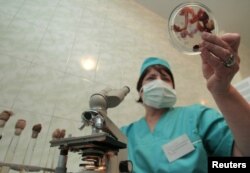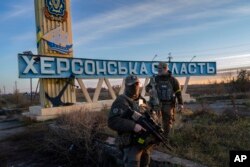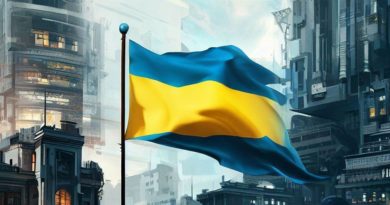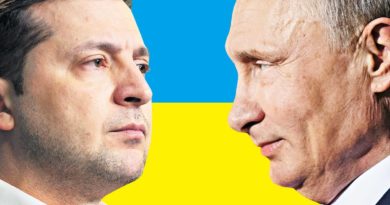Moscow Tones Up False Claims About ‘U.S. Bioweapon Labs’ Along Ukraine-Russia Borders
On April 11, Igor Kirillov, the head of the Russian Armed Forces’ Radiation, Chemical and Biological Protection Troops, claimed that the United States clandestinely developed biological weapons in Ukraine.
Kirillov is a regular purveyor of disinformation. He previously spread the baseless claim that the U.S. is seeking “to develop bio-agents capable of targeting various ethnic groups.”
Now, ramping up the “U.S. bioweapons” disinformation, Kirillov said this type of work has been conducted in parts of Ukraine currently occupied by Russia — namely Kherson, Donetsk and Luhansk.
“We have no doubt that the United States, under the guise of ensuring global biosafety, conducted dual-use research, including the creation of biological weapons components in the immediate vicinity of the Russian borders,” he said.
That is false.
There is no evidence the U.S. has ever developed or attempted to develop biological weapons near Russia’s borders.
The United States, like Ukraine, is party to the Biological Weapons Convention, which “effectively prohibits the development, production, acquisition, transfer, stockpiling and use of biological and toxin weapons.”
Since 2005, the U.S. has partnered with Ukraine to improve the country’s “biological safety, security, and disease surveillance for both human and animal health.”
One aspect of this partnership has been to help neutralize the remnants of the “vast and illegal” bioweapons program run by the Soviet Union for decades, including on the territories of former USSR republics, like Ukraine.
These efforts were undertaken in partnership with outside organizations like the World Health Organization and the World Organization for Animal Health, which also conducted oversight.
The U.S. provided funding to help Ukraine upgrade its biolabs. But these labs are run by Ukrainians, subject to Ukrainian law and operate “just like other state or local public health and research laboratories around the world,” the U.S. Department of Defense (DOD) said.
Like elsewhere in the world, pathogens are stored in these labs.
DOD said public health facilities store and use specific pathogens endemic to their countries “to confirm outbreaks of disease and to improve early detection and diagnostic capabilities.”
“This is a basic capability for national health security,” DOD said.
The research in Ukraine is not secret. The U.S. Embassy in Kyiv provides information on the bio-threat reduction mission, including what the U.S. is doing in Ukraine and where it’s been doing it. That includes facilities in Luhansk, Donetsk and Kherson.
Russian scientists visited these facilities in Ukraine prior to Moscow’s 2022 invasion and reported no issues.
Russia has regularly conflated “biolab” with “bioweapons lab,” painting the U.S. threat reduction efforts in Ukraine as a nefarious plot.
But The Bulletin of the Atomic Scientists wrote in March that the current U.S. efforts to counter biological threats are observably different “from past examples of offensive biological programs designed to develop weapons.”
Still, distinguishing whether a state’s biological research is offensive or defensive, which The Bulletin of the Atomic Scientists described as a “complex undertaking,” has proven to be fertile ground for Russian disinformation.
That was demonstrated in March 2022, when Russian Ambassador to the United Nations Vasily Nebenzya raised the specter of a U.S. biological weapons program in Ukraine before the U.N. Security Council.
Citing documents allegedly found in occupied Ukraine, Nebenzya questioned why the U.S. had collected samples of dangerous pathogens that could spread via water.
As Polygraph.info previously reported, the answer was simple: to prevent the spread of disease.
Hundreds of Russian biologists inside and outside Russia said the Russian claim that the U.S. was conducting bioweapons research in Ukraine was an outright fabrication.
The Intercept reported that those scientists, at “risk to their safety,” said the documents Moscow presented to substantiate their bioweapons allegations showed nothing more than the collection of pathogens for public health research.
Izumi Nakamitsu, the U.N. high representative for disarmament affairs, said the U.N. was unaware of any biological weapons research in Ukraine.
Ukraine has not been the only target of Russia’s disinformation about “U.S. bioweapons.”
Russia has also falsely accused the U.S. of secretly developing biological weapons in Georgia, another country bordering Russia, which Moscow invaded in 2008.
National Public Radio reported in March 2022 that skepticism surrounding the origins of COVID-19 had also helped Russia spread bioweapons disinformation about Ukraine.
China, which has spread disinformation about U.S. biolabs to deflect questions about the origins of COVID-19, has seized on Russia’s baseless bioweapons claims to call for an investigation into alleged U.S. “military-biological projects.”
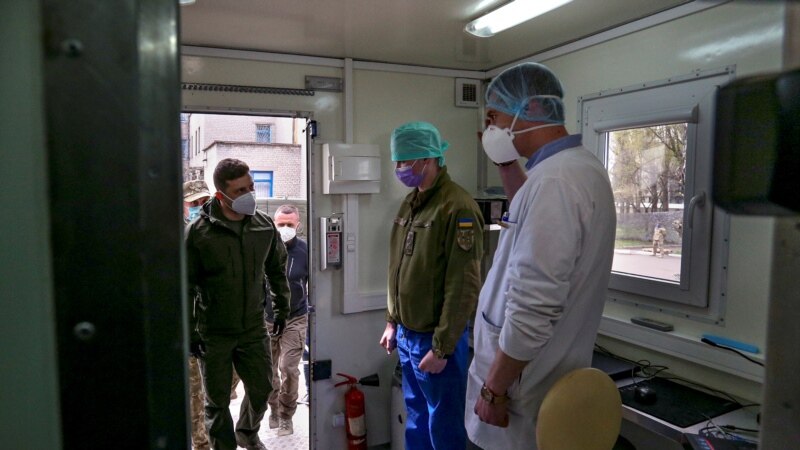
This article has been archived for your research. The original version from Polygraph.info can be found here.
